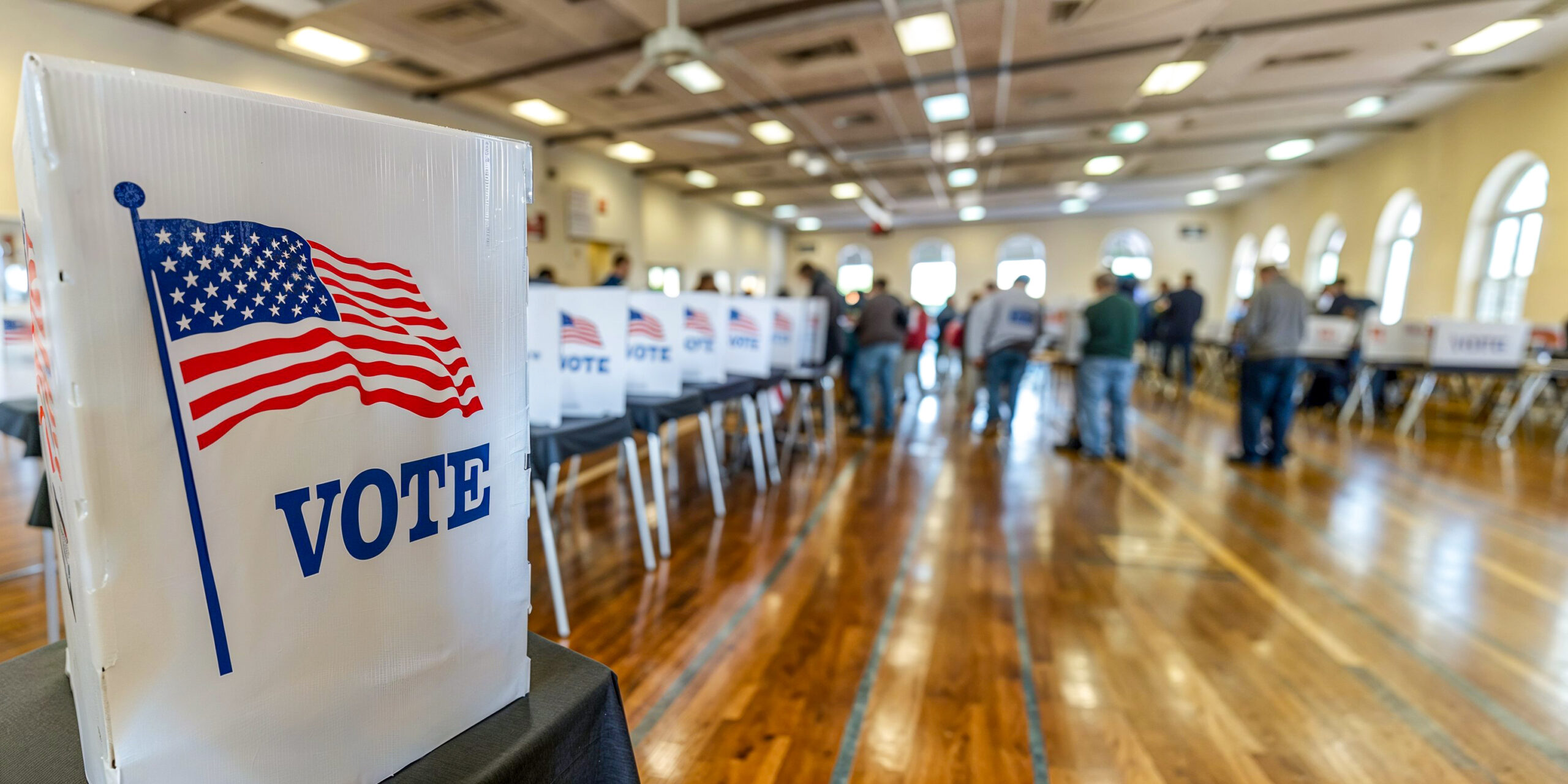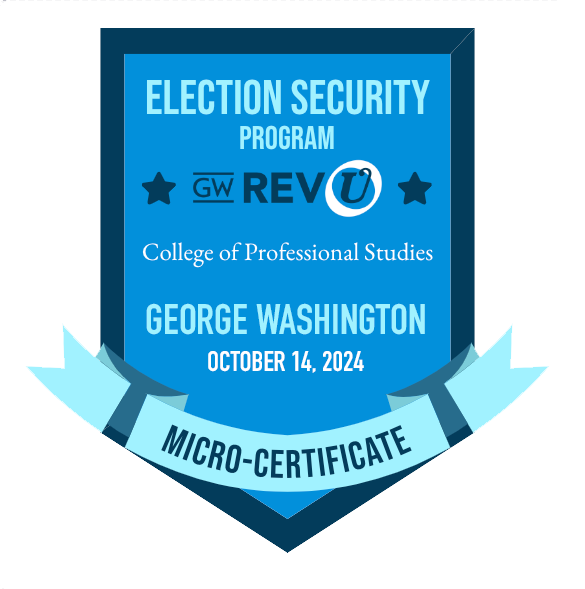- Home
- Cybersecurity, Stronger Together
- Explore
-
-
CYBERSECURITY
Cybersecurity qualifications unlock careers, prove expertise, drive innovation, and will shape the digital frontier in tomorrow’s AI-driven threat landscape.
Learn More
-
HOMELAND SECURITY
Homeland Security qualifications empower leaders, safeguard nations, advance resilience, and shape the next generation of defenders in an evolving global threatscape.
- Leadership and Management
- Emerging Technologies
- Medical Management & Prehospital Considerations
- Capstone
-
CPS PROGRAMS
George Washington University’s College of Professional Studies offers dynamic, career-ready courses in leadership, cybersecurity, CBRNE, technology, and public service—transforming professionals worldwide.
Learn More
-
REVU EXCLUSIVES
GW RevU’s growing number of exclusive courses offer a range of learning opportunities, from student success and introductory courses to cutting-edge courses about what is happening in the world now.
Learn More
-
-
-
- Cybersecurity
-
-
CYBERSECURITY
Welcome to CyberForge.
MISSION — GW RevU aims to be a prime resource for lifelong learners and employers offering interdisciplinary, career-focused credentials that support up-skill, reskilling, and society advancement.VISION — GW RevU envisions delivering innovative, flexible education that meets evolving workforce needs and to empower professionals with current, market- and needs-based skills.
Learn More
-
PARTNERS
-
Cybersecurity (Coming Soon)
-
CISSP (Coming Soon)
- Homeland Security
-
-
HOMELAND SECURITY
Chemical. Biological. Radiological. Nuclear. Explosive. WMDs. Asymmetric Threats.
The CBRNE-WMD credentials program is a robust training series designed to prepare early and developing professionals for the complexities of a dynamic and evolving threat environment. Three interdependent certificates that deal with policy, mitigation, and emerging threats will propel you towards an immersive capstone in Washington, D.C. and the next steps in your career protecting our nation.

-

CBRNE-WMD Leadership and Management
Gain strategic leadership skills to manage CBRNE-WMD incidents through legal frameworks, interagency coordination, and real-world case studies.

CBRNE-WMD Hospital and Pre-Hospital Management
Learn medical response skills for CBRNE-WMD incidents, including triage, decontamination, PPE, and early threat detection in mass casualty events.

CBRNE-WMD Emerging Threats
Explore emerging CBRNE-WMD threats and technologies like AI and nanotech to enhance preparedness and response capabilities in complex environments.

CBRNE-WMD Capstone Event, Washington, D.C.
Experience an immersive, high-intensity, and multi-modal exercise that reflects the dynamic asymmetric threats of the modern world. The Capstone Experience is an annual event that is available to students that have completed the other CBRNE-WMD credentials.
-
- Degree Programs
-
-
CPS Programs
GW’s CPS bachelor programs empower working professionals with flexible, real-world education—launching impactful, leadership-focused, globally-oriented careers.
Learn More
-
BACHELORS DEGREES
GW’s CPS bachelor programs empower working professionals with flexible, real-world education—launching impactful, leadership-focused, globally-oriented careers.
Learn More
-
POSTGRADUATE DEGREES
CPS’s postgraduate programs transformed experienced professionals into visionary leaders through immersive, real-world learning, powerful networks, and practical rigor across critical fields.
- Cybersecurity Strategy & Information Management
- Homeland Security
- Legislative Affairs
- Paralegal Studies
- Political Management
- Public Relations & Communications
- Publishing
- Sustainable Urban Planning
-
REVU EXCLUSIVES
GW RevU’s growing number of exclusive courses offer a range of learning opportunities, from student success and introductory courses to cutting-edge courses about what is happening in the world now.
Learn More
-
- About RevU
Election Security
The Election Security Credential provides participants with the critical skills needed to safeguard the integrity of elections. This 10-hour course allows you to work at your own pace through flexible, in-depth learning, culminating in a hands-on scenario. Participants will apply their knowledge to address security threats at polling locations, preparing them to handle real-world challenges.
Now Available!
Course Registration Fee: $149
Master Election Protection

Earn a cutting-edge credential that builds on the essentials of election security, providing you with a strong foundation in the electoral process. Explore cybersecurity techniques to protect election infrastructure from digital threats and ensure a secure voting environment. Align with top homeland security practices and experts in the field who uphold the integrity of elections and maintain public confidence.
This course is ideal for:
- Volunteers and citizens interested in election integrity.
- Election officials seeking to enhance their security measures.
- Cybersecurity and IT professionals who want to add to their knowledge of election security.
- Public administration and policy professionals who want to deepen their understanding of electoral integrity.
- Students interested in learning more about threats to the electoral process.
“…we’ve created this election security credential that delivers insights and thought-provoking questions for those eager to learn more about the electoral process and some of the threats and challenges facing our elections.”
Dr. Todd belt, Director for the Political Management Master’s ProgramElection Security Credential At A Glance
Cost
Price: $149
Convenient Online Format
This credential’s convenient online format offers flexibility to fit your busy schedule. You can avoid long commutes while still receiving high-quality education and expanding your knowledge on election security—all from the comfort of your home.
Set Your Own Pace
Whether you want to complete the credential as quickly as possible or balance it with your busy life, GW RevU is here to help you reach your educational goals. The credential takes approximately 10 hours to complete.
Curriculum Overview
The curriculum for this credential is built on three main pillars that support the overall objectives: U.S. Campaigns and Elections, Physical Security, and Cybersecurity. Below is a breakdown of some elements you can expect to explore and learn throughout the curriculum.
U.S. Campaigns and Elections
- Election Administration Processes and Vulnerabilities
- Operations and Vulnerabilities in Electoral Campaign
Physical Security
- Election Officials
- Support to Elections
- Poll Workers
- Open Source Intelligence (OSINT)
- Polling Locations and Ballot Security
- Voting Equipment and Supply Chains
Cybersecurity
- Importance of Election Cybersecurity
- Cybersecurity as a Critical Infrastructure
- Disinformation and its Impact
- Areas to Protect
- Types of Potential Cyberattacks
- NIST and CISA Cybersecurity Frameworks
Election Security Case Study
- Hear directly from experts in Charleston County, South Carolina, about how their Election Security program was created at the county level, including using national-level intelligence in real time to apply it locally.
Election Security Scenario
- Take a first-hand experience of Election Day from the perspective of a lead poll worker.
Upon Successful Completion
Learners who complete each credential will receive a GW RevU Election Security Professional Micro-Certificate Digital Badge issued by Accredible. Share the digital badge on social media and your LinkedIn profile to showcase your new knowledge of Election Security.

Sample Election Security Badge issued by Accredible. Credential Objectives
Learners will:
- Apply and Test Their Knowledge: Experience first-hand what it’s like to help run a polling location and the threats that may follow by participating in a practical scenario.
- Understand the Foundational Elements of US Elections: Exploring how US Elections are administered and the roles and responsibilities of individuals involved.
- Assess the Importance of Election Cybersecurity: Understand elections as a critical component of national infrastructure and the potential consequences of cyber threats.
- Analyze Historical Cyber Attacks: Review significant domestic cyber attacks on elections and their impact.
- Analyze physical and cyber threats: Explore how threats are assessed and mitigated to ensure smooth elections.
- Distinguish Between Different Types of Cyber Attacks: Learn about various forms of cyber attacks and their unique impacts on election security.
- Recommend Security and Disinformation Countermeasures: Develop effective strategies to enhance election security and counter disinformation.

Meet Our CPS Faculty
The College of Professional Studies and the Graduate School of Political Management feature world-class faculty with years of industry experience. Learn from top academics in their areas of expertise as they deliver knowledge to enhance your understanding of election security.

Dr. Todd Belt
Program Director, Political Management; Professor

Jeff Delinski
Program Director, Homeland Security BPS; Assistant Professor

Elaine Lammert
Program Director, Homeland Security MPS; Associate Professor

Connie Peterson Uthoff
Program Director, Cybersecurity Strategy and Information Management; Assistant Professor

Meet Our Industry Experts
Learn from top professionals in the field, including intelligence experts, threat managers, election integrity experts, and other specialists in Election Security. These instructors bring a wealth of experience from government, industry, and academia, providing you with the most current and relevant insights. Hear directly from them why it’s so crucial to protect the integrity of our electoral system.

Mariella Chilmaza
Expert in Election Intelligence

Madison Horn
Expert in Election Cybersecurity

Lauren Knapp
Counter Threat Manager for Charleston County Department of Public Safety

David Levine
Expert in Electoral Integrity and Security

Chelsea Magnant
Director at the Brunswick Group in the Technology, Media, and Telecoms

Natasha Streets
Deputy Director of Voter Services for the Charleston County Board of Voter Registration and Elections Office
Thank you for your interest in the George Washington University’s College of Professional Studies. Please fill out the request for information form below, and we will be in touch shortly.
Loading…Thank you for your interest in the George Washington University’s College of Professional Studies. Please fill out the request for information form below, and we will be in touch shortly.
Request Information

Georgie
This AI chatbot provides automated responses, which may not always be accurate. By continuing with this conversation, you agree that the contents of this chat session may be transcribed and retained. You also consent that this chat session and your interactions, including cookie usage, are subject to our privacy policy.
-
-
-


